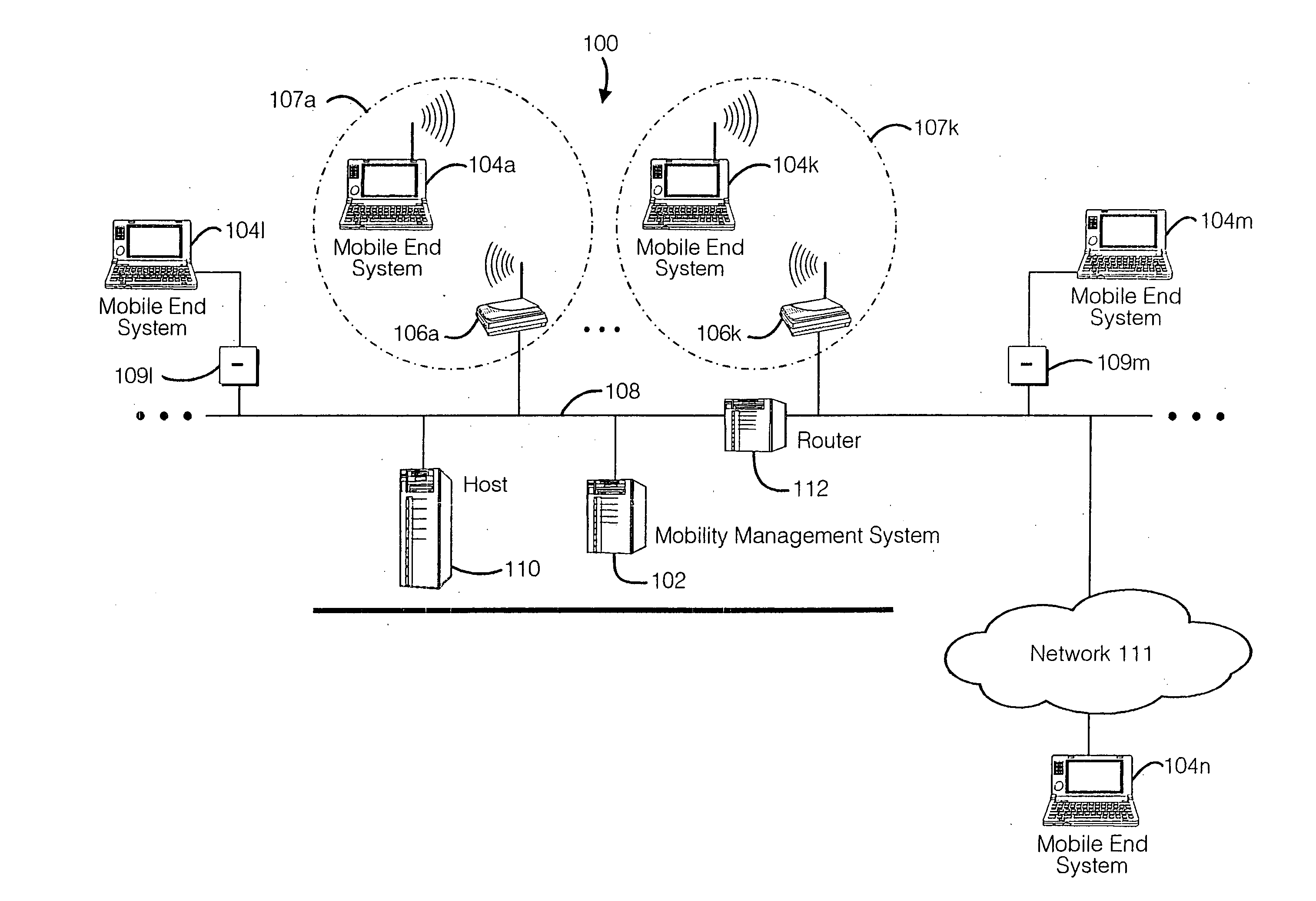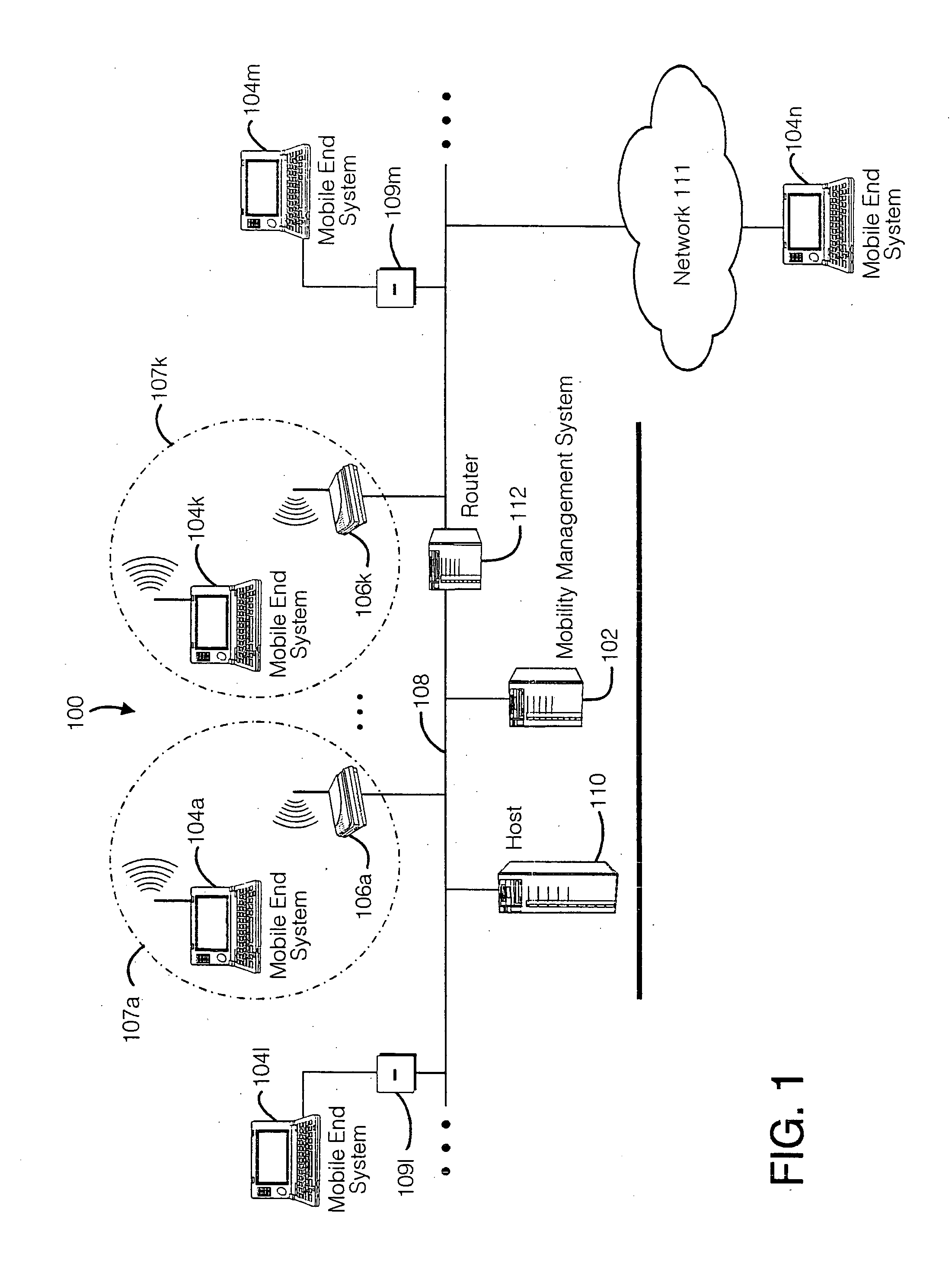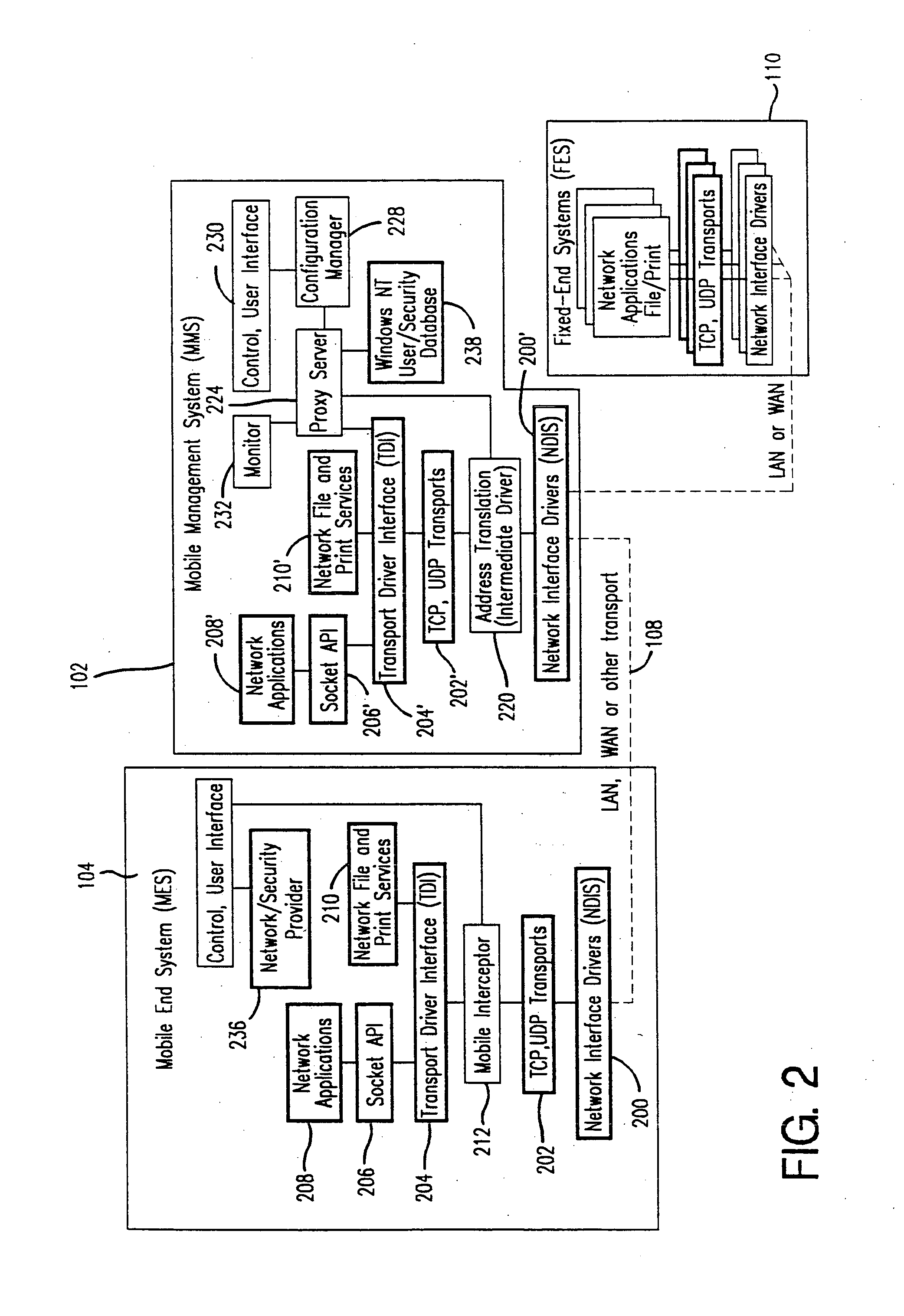Method and apparatus for providing mobile and other intermittent connectivity in a computing environment
a computing environment and mobile technology, applied in the field of networked computing devices, can solve the problems of limited bandwidth, slow performance over these network technologies, and difficulty for information managers, and achieve the effects of extending the reach of standard network application interfaces, significant performance improvements, and reducing network traffi
- Summary
- Abstract
- Description
- Claims
- Application Information
AI Technical Summary
Benefits of technology
Problems solved by technology
Method used
Image
Examples
examples
[0294] A presently preferred exemplary implementation of present non-limiting implementation finds application in a variety of real-world situations. For example:
Intermittently Connected Portable Computer
[0295] Many businesses have employees who occasionally telecommute or work from home. Such employees often use laptop computers to get their work done. While at work, the employees typically connect their laptop computers to a local area network such as an Ethernet through use of a docking port or other connector. The LAN connection provides access to network services (e.g., printers, network drives) and network applications (e.g., database access, email services).
[0296] Now suppose an employee working on a project needs to go home for the evening and wants to resume working from home. The employee can “suspend” the operating system and applications running on the laptop computer, pack up the laptop computer, and bring the laptop computer home.
[0297] Once home, the employee can...
PUM
 Login to View More
Login to View More Abstract
Description
Claims
Application Information
 Login to View More
Login to View More - R&D
- Intellectual Property
- Life Sciences
- Materials
- Tech Scout
- Unparalleled Data Quality
- Higher Quality Content
- 60% Fewer Hallucinations
Browse by: Latest US Patents, China's latest patents, Technical Efficacy Thesaurus, Application Domain, Technology Topic, Popular Technical Reports.
© 2025 PatSnap. All rights reserved.Legal|Privacy policy|Modern Slavery Act Transparency Statement|Sitemap|About US| Contact US: help@patsnap.com



